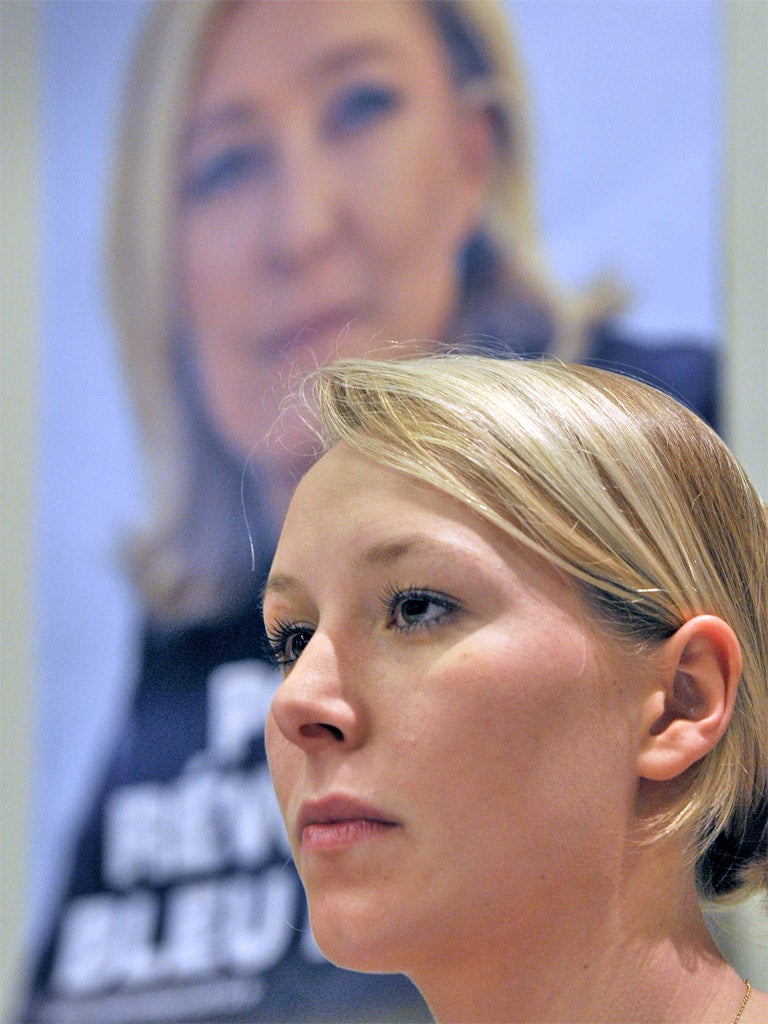French Left set for historic triumph but Socialists will fall short of majority
Polls show Hollande may need help of Greens and Communists

Your support helps us to tell the story
From reproductive rights to climate change to Big Tech, The Independent is on the ground when the story is developing. Whether it's investigating the financials of Elon Musk's pro-Trump PAC or producing our latest documentary, 'The A Word', which shines a light on the American women fighting for reproductive rights, we know how important it is to parse out the facts from the messaging.
At such a critical moment in US history, we need reporters on the ground. Your donation allows us to keep sending journalists to speak to both sides of the story.
The Independent is trusted by Americans across the entire political spectrum. And unlike many other quality news outlets, we choose not to lock Americans out of our reporting and analysis with paywalls. We believe quality journalism should be available to everyone, paid for by those who can afford it.
Your support makes all the difference.The French left is expected to triumph in parliamentary elections over the next two Sundays, seizing almost all national and local levers of power for the first time in more than a century.
President François Hollande's Socialist Party may fall short of winning an absolute majority in the National Assembly and will probably depend on Green and, maybe, Communist members to enact his programme. But opinion polls suggest the French electorate will confirm its left turn in the presidential elections of April and May and end the existing centre-right majority in the lower house of parliament. Mr Hollande's popularity and a desire for clear leadership in a muddled and troubled Europe favour a left-wing victory in a largely insipid campaign. The Socialists and allies already control the Elysée Palace, the upper house (Senat), 21 out of the 22 regions and most cities and départements. A victory in the two-round elections would give the left almost a clean sweep of power for the first time in modern French history.
The elections could also begin to redraw the boundaries of French party politics. The Greens, thanks to a deal with the Socialists, seem certain to enter parliament in numbers for the first time. Marine Le Pen's far-right National Front hopes to win half-a-dozen seats or – at least – provoke the disintegration of ex-President Nicolas Sarkozy's deeply divided centre-right party, the Union pour un Mouvement Populaire.
The perverse rules of the elections make all precise forecasts hazardous. Although the National Front is predicted to win 15 to 17 per cent of the national vote and reach the second round in 100 out of 577 constituencies, the party may again end up with no seats.
All media eyes have been drawn to Ms Le Pen's own vituperative three-way battle, in Hénin-Beaumont in the Pas de Calais, with the hard-left leader Jean-Luc Mélenchon and a local Socialist candidate. But the NF's best chances may come in a cluster of constituencies in the Rhône valley and the south-east, including Carpentras, near Avignon, where Jean-Marie Le Pen's granddaughter, Marion Maréchal-Le Pen, 22, is standing.
The election is crucial. The constitutional powers of a French president are more limited than those of an American president. It is the political complexion of the national assembly which decides whether a president can rule with his own friends and allies or whether he must appoint one of his opponents as prime minister. Although there have been three cases of "co-habitation" between left and right in the past 26 years, the French electorate has never denied a friendly majority to a newly elected president. Mr Hollande's Prime Minister, Jean-Marc Ayrault, will almost certainly have a parliamentary majority after the second round on 17 June. It remains to be seen how friendly that majority is. Polls suggest that the combined left will win between 303 and 357 seats, and that the Socialists alone will take between 249 and 291, with 289 needed for a majority.
If Mr Ayrault has to rely on hard-left as well as Green votes in the assembly, it may be much tougher for Mr Hollande to push through spending cuts and other less palatable parts of his programme. It may also be necessary to reshuffle the Ayrault government to introduce a couple of junior Communist ministers.
Unlike the presidential elections, more than two candidates can reach the second round in the parliamentary poll. Any candidate who takes 12.5 per cent or more of the local registered vote can go through to the run-off. There can be two, three or occasionally four candidates in the second round, which is decided on the first-past-the-post system.
The left wing parties have an understanding that only the best-placed candidate will run in the second round. The centre right – to the fury of some candidates – refuses to make a similar deal with the NF. In up to 70 constituencies, the right-wing vote will split in the second round, favouring the left.
Join our commenting forum
Join thought-provoking conversations, follow other Independent readers and see their replies
Comments